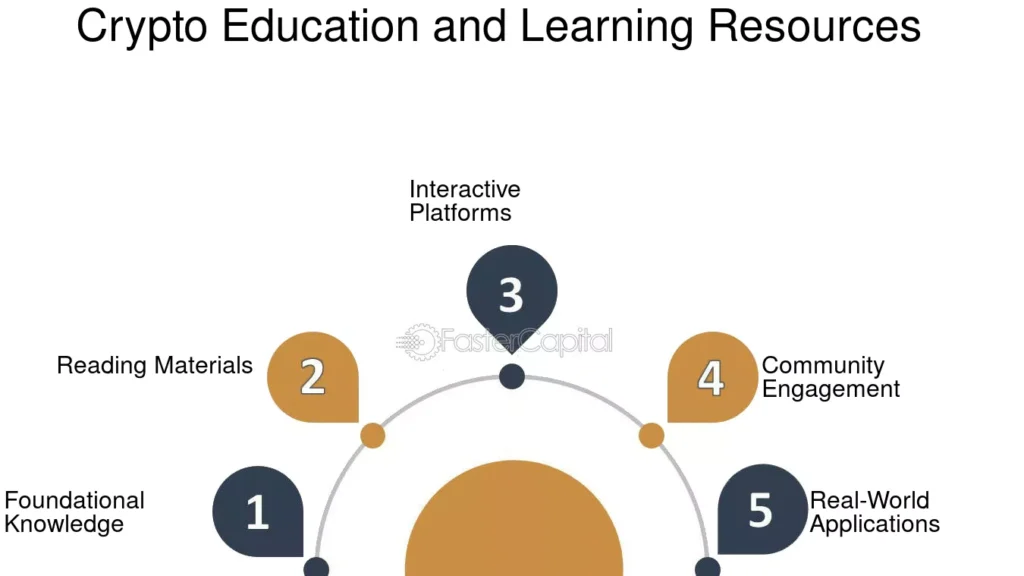The advent of Bitcoin in 2009 marked the beginning of a financial and technological revolution. Over the past decade, cryptocurrencies like Ethereum, Ripple, and Solana have reshaped industries, while blockchain technology—the decentralized ledger system underpinning these assets—has unlocked innovations in supply chains, healthcare, voting systems, and more. As the global crypto market surged to a $3 trillion valuation in 2021, the demand for skilled professionals in blockchain development, cryptography, and decentralized finance (DeFi) skyrocketed.

In response, U.S. universities have pioneered academic programs to equip students with the tools to navigate this dynamic field. This article explores why the United States has become a global hub for crypto education, highlights leading institutions, and examines the challenges and opportunities shaping this burgeoning discipline.
Why Study Crypto in the USA?
The U.S. is uniquely positioned to offer world-class crypto education due to its blend of academic excellence, industry innovation, and regulatory frameworks.
- Academic Leadership: American universities dominate global rankings in computer science, engineering, and finance—disciplines critical to understanding blockchain. Institutions like MIT and Stanford are at the forefront of blockchain research.
- Industry Proximity: Silicon Valley, New York’s fintech hubs, and Austin’s startup ecosystems provide unparalleled access to crypto enterprises like Coinbase, Kraken, and Ripple.
- Regulatory Clarity: While evolving, U.S. regulations (e.g., the SEC’s guidance on digital assets) create a structured environment for studying legal and compliance challenges.
- Interdisciplinary Approach: Crypto intersects with law, economics, and ethics, and U.S. programs often integrate these perspectives.

Leading Universities and Programs
Here are some top U.S. institutions offering specialized crypto and blockchain programs:
- Massachusetts Institute of Technology (MIT)
- MIT Digital Currency Initiative: Focuses on blockchain scalability, security, and policy.
- Courses: Blockchain Ethics, Cryptocurrency Engineering and Design.
- Notable: Hosts the annual MIT Bitcoin Expo.
- Stanford University
- Center for Blockchain Research: Explores smart contracts, zero-knowledge proofs, and decentralized governance.
- Courses: Cryptocurrencies and Blockchain Technologies.
- University of California, Berkeley
- Blockchain at Berkeley: Student-run initiative offering courses like Blockchain Fundamentals.
- Online: Blockchain Technology on edX.
- New York University (NYU)
- MS in Fintech: Includes blockchain modules.
- Crypto Lab: Partners with firms like ConsenSys.
- Harvard University
- Harvard Blockchain Group: Research in DeFi and NFTs.
- Online: CS50’s Introduction to Blockchain via edX.
Other Notable Schools:
- Carnegie Mellon (MSc in Blockchain)
- University of Pennsylvania (Wharton’s Crypto Asset Courses)
- Georgetown (Law Center’s Blockchain Initiatives)

Curriculum and Specializations
Crypto education in the U.S. spans undergraduate to doctoral levels, with interdisciplinary options:
- Core Technical Courses
- Blockchain Architecture
- Cryptography
- Smart Contract Development (Solidity, Rust)
- Finance and Economics
- Tokenomics
- Decentralized Finance (DeFi)
- Crypto Asset Management
- Law and Policy
- Regulatory Compliance
- Intellectual Property in Web3
- Anti-Money Laundering (AML) Frameworks
- Ethics and Society
- Decentralization vs. Privacy
- Environmental Impact of Proof-of-Work
Certifications:
- Certified Blockchain Professional (CBP)
- Digital Currency Council (DCC) Credentials
Research and Innovation
U.S. universities drive groundbreaking blockchain research:
- MIT’s Digital Currency Initiative: Developing the Lightning Network for Bitcoin scalability.
- Stanford’s Blockchain Group: Pioneering zero-knowledge rollups for Ethereum.
- Cornell’s IC3: Focuses on blockchain interoperability.
Government-Funded Projects:
- The National Science Foundation (NSF) awards grants for blockchain security research.
Industry Partnerships and Internships
Collaborations between academia and industry bridge theory and practice:
- IBM Partnerships: With schools like Stony Brook for enterprise blockchain solutions.
- Internships: Coinbase, Binance.US, and Gemini offer roles in engineering, legal, and marketing.
- Hackathons: ETHDenver and MIT Bitcoin Hackathon foster innovation.
Challenges in Crypto Education
- Regulatory Uncertainty: SEC’s shifting stance on crypto securities complicates compliance training.
- Technological Complexity: Rapidly evolving tools (e.g., Layer 2 solutions) require constant curriculum updates.
- Market Volatility: Crypto’s boom-bust cycles impact job stability perceptions.
- Environmental Concerns: Debates over energy-intensive mining practices persist.
Career Opportunities
Graduates pursue roles such as:
- Blockchain Developer (120k–120k–180k salary)
- Crypto Compliance Officer
- DeFi Analyst
- NFT Project Manager
Employers: JPMorgan, Fidelity, MetaMask, and startups.

The Future of Crypto Education
Trends to watch:
- Central Bank Digital Currencies (CBDCs): Research on digital dollar frameworks.
- Sustainability: Shift to proof-of-stake and green mining.
- Web3 Integration: Universities may tokenize credentials or host virtual campuses in the metaverse.
Conclusion
Studying crypto in the USA offers a gateway to one of the 21st century’s most transformative fields. With robust academic programs, cutting-edge research, and proximity to industry leaders, students are well-equipped to drive innovation—despite challenges like regulatory flux. As blockchain reshapes global systems, U.S. institutions will remain pivotal in cultivating the next generation of crypto pioneers.